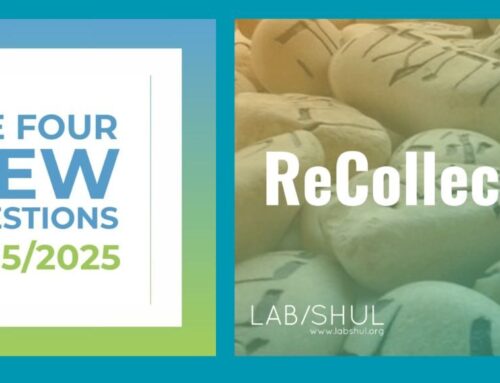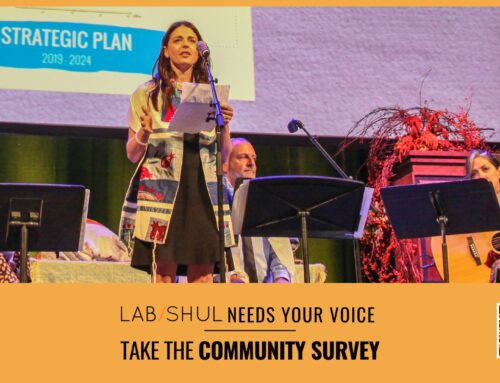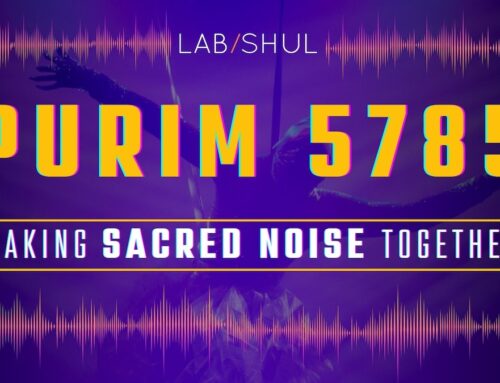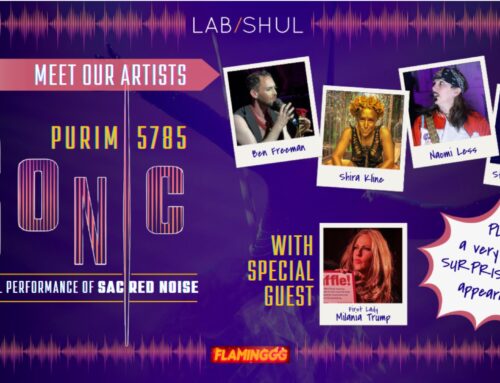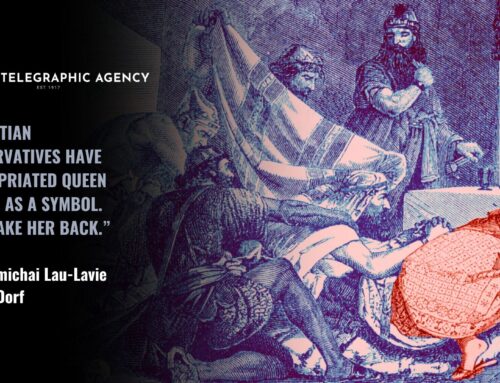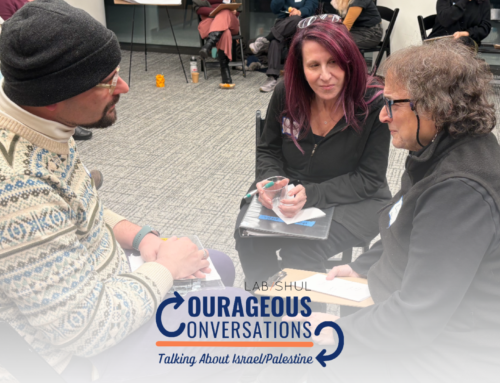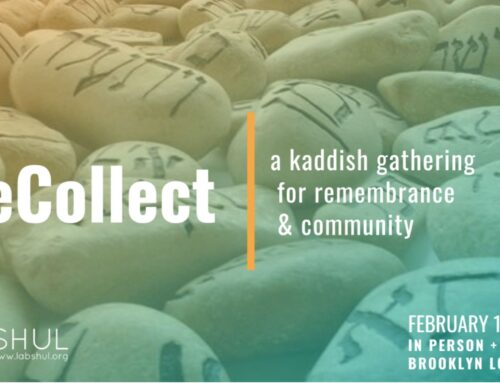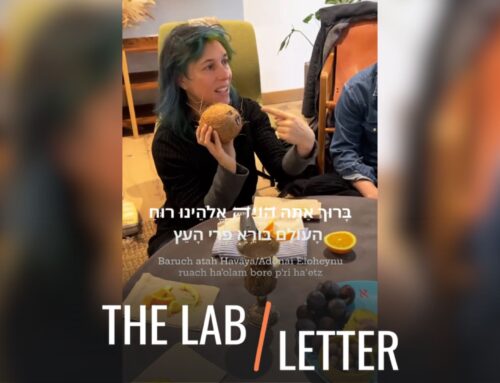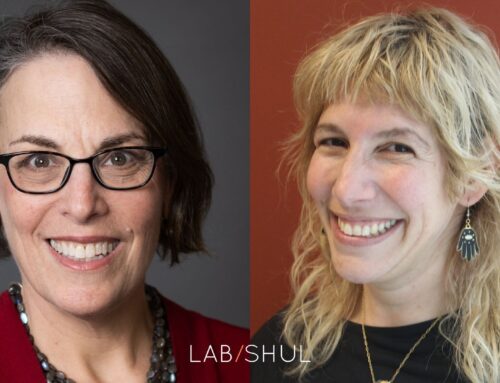I’m not often quick to join a circle dance. But this was one I simply had to get up and join.
Ahmad smiled and extended his hand, and as I clasped it, I turned to the woman to my left, she was wearing a Hijab and we had not met yet, but her smile and hand was warm, and there was no time to pause – the dance steps were simple but specific and I had to focus on which foot to move, when to raise my hands, while singing along, in Arabic. After a few minutes, not without stumbles, I felt like I got the groove. And as I chanted Allah’s name, and prayed for mercy, hand in hand with a hundred Palestinians and Israelis, all dancing together, my tears began to flow. I looked around and saw that I was not the only one dancing in that circle with wet cheeks, as our eyes met.
We were at a Sulha gathering held at an astoundingly beautiful Bedouin oasis overlooking a desert view that extended far beyond into the Dead Sea. The group consisted of Israeli and Palestinians, all ages, some fluent in both Hebrew and Arabic; many, like me, struggling to communicate and translate. We came to spend a day together – to hear each other’s hurts and hopes, to pray, play, sing and sigh together. We can forge friendships and pave paths of collective commitment to liberation and justice even as all around us such gestures are increasingly fraught and frowned upon.
I’ve been to many such gatherings before and am honored to be among this movement’s advisor and supporters. The Sulha gatherings are not about strategy or solutions to end the conflict. The simple fact that simple people choose to come and meet each other, face to face, despite despair and danger – is the strategy and the solution. We were Muslims, Christians and Jews, Palestinians from Ramallah, Hebron, East Jerusalem, Bethlehem and Haifa, Israelis from Tel Aviv, Jerusalem, and as far south as Eilat – to lift up this sacred time and to ask each other – what helps us hold on during this devastating time? How can we help each other survive, thrive, persist and resist?
There were children and elders, families that came together. It’s much harder for Palestinians to travel this far, especially during this time when every checkpoint can be dangerous. Yet two minibuses arrived from one of the refugee camps, with families that keep coming to each Sulha event. Among them is Amin, an elder and leader, whose leg was broken by IDF soldiers for no reason, almost a year ago. At this event, before we started dancing he led a powerful circle about his ongoing commitment to non-violent resistance.
Some among us are religious, with head coverings from Hijbas to Kippas. A third of the 100 who attended were there for the first time.
Over the years I’ve come to these gatherings, again and again, even during these difficult past many months, making new friends each time, getting to know so much more than the stories I grew up with and the narratives that have defined my life. But this may have been the first time that we had a circle dance.
This special Sulha was held on the last day of Passover, which this year was also Good Friday. The Seventh Day of Passover recalls the ancestral courage of the Hebrews as they crossed through the Sea of Reeds in pursuit of freedom. For Christians, Good Friday is how Easter starts, a solemn day of sorrow commemorating the Crucifixion, leading into the Resurrection.
We began by inviting the children to light our peace candles, along with prayers and a song. I then stood up to tell the tale of the woman who in Jewish tradition is the daughter of Pharaoh, and in the Muslim version is the queen. What both versions share is that despite the risk, this courageous woman saved a baby boy who was floating on the Nile. What did it take for her to risk her life, to break the law, and save the baby whom she named Moses, Musa, Moshe? Who are the role models of such generous resistance in our own lives? We broke into small circles to share each other’s stories and ancestral role models of resistance – from Moses’s mothers, to Moses and Jesus, to our own parents, teachers, leaders and neighbors?
By the end of the day, after that dance circle, there were hugs, contact details exchanged, and promises to keep on holding each other’s hands.
We later learned that some of the cars were stopped and detained at the stopwatches, but that everybody made it home safely by the time the sun had set and Shabbat began. And as I sat around the Shabbat-holiday table with my family, including two of our children who were at the Sulha with us we wondered – what if just 1% of Israelis and Palestinians were to be at one of these gatherings? How would we forever change the conversation – face to face, hand in hand, tear by tear, dance by dance?
The next morning, through the quiet streets of Jerusalem on Shabbat, I pushed my 95-year-old mother in a wheelchair, heading to a weekly vigil for the return of the hostages—a gathering she insists on attending, rain or shine. ‘Remember when you used to take me by the hand to synagogue when I was a little kid?’ I asked. We both smiled, remembering, and chuckled at how life unfolds and changes—and yet, here we still were.
By the time we reached the nearby joining, hundreds were already gathered and singing quietly, a group of synagogue goers from several local congregations –mostly Orthodox, but also Reform and Conservative, who began to gather a few months ago, after Shabbat morning services, to stand in solidarity, to sing, pray and protest the steep price of this ongoing war and its terrible impact on too many lives.
There is no amplification and there are no speeches. People come together in a rare show of unity across religious lines, in yet another display of civic commitment to challenge the reality, to grieve and to pray together. It’s about a 10 minutes walk from my mother’s home and she has insisted on being there each time, even if it means being taken in a wheelchair, which she dislikes. This week I had the honor of getting her there, glad to see many familiar faces, including relatives and neighbors, friends from different communities and walks of life.
Some people were holding up signs with the numbers 561 – the number of days since 10/7, and some had signs with the number 59 – the remaining hostages, dead and alive.
At the back of the vigil, to the side, a few people were standing with photos of Palestinian children killed since the ceasefire ended a month ago – more innocent victims of violent conflict with no end in sight.
(As I’m writing this, getting ready to pack and fly back to the US, it was just announced on the news that holding up these signs is now illegal and prohibited by the police. This shameful and telling attempt to silence is likely to end up in the courts as soon as tomorrow.)
In the month that I’ve now spent here I’ve been to more than a dozen large scale protests, demonstrations and vigils in Jerusalem, Tel Aviv, Haifa and Jaffa.
But unlike many of the more passionate and violent protests, where ideologies clash and police brutality undermines safety, this weekly vigil remains calm, even as not all who attend agree on every poster and position. Perhaps this is because it’s a very local gathering, with neighbors who know each other, or because it’s more of a vigil than protest, as people sing together, familiar Hebrew songs, hymns of hope and homecoming, prayers for peace.
561 days later, many Israelis, among them my mother, seek all sorts of ways to find comfort, hope, a path out of what seems like a never-ending sad saga of destruction, ever-present in every aspect of our lives.
Some seek spiritual sustenance while others look for any distraction possible. Despite persistent protests the political reality resists solutions that will bring back hostages and alleviate the suffering of Gazans. The most divisive coalition in this nation’s history stands strong, now with US support. Everyone is exhausted yet many refuse to give up on hope.
On this Shabbat morning, under a hot spring sun, my mother sat tall in her wheelchair, and sang as loud as she could: “Please protect us, our dear God, for the sake of the honey and the sting, save the bitter and the sweet.”
“Al Kol Eleh – For All of This” written by Naomi Shemer in the 1980’s has become a hymn and anthem for hope. It is one of my mother’s cherished songs and she chose its title as the title for her memoir. When it was published a few years ago none of us imagined that we’d be standing here, in the middle of the street, in the middle of a war, singing it in tears. Yet here we were.
I stood behind her, holding on to the hand, surrounded by singers, and sobbed. When I looked up I realized that – once again – I was not the only one with wet cheeks.
We share so much more in common than divides us.
On this Earth Day, grateful to be alive, I plead and pray for more of us to find our ways to circle dances and to vigils, to the streets in protest and towards each other’s hearts. Despite the deep suspicions that belittle our trust – there are songs, and there are stories, and there are extraordinary days and ways with which we can rise above the din to keep creating sacred, common ground.
Come what may, the human spirit that has guided our ancestors, from oppression to liberation, from despair to hope, the spirit that continues nurturing us, depends on us to keep on singing, dancing, holding on together to each other’s hand and pave the path forward.
I invite you to join me along with fellow communities, organizations, peacemakers, and activists as we explore what Israel means to us, affirm our commitment to democracy and safety for all, and co-create hopeful, peaceful futures for Israelis, Palestinians, all who call the Holy Land home, and all who care about its future. Click here to learn more and join our woven series of special events, online and in NYC:
- 4/27 @ 6pm EST – Lab/Shul’s Becoming Israel Staged Reading & Talkback
- 4/29 @ 1:30pm EST – Israeli-Palestinian Joint Memorial Day Ceremony 2025
- 4/29 @ 7pm EST – 14Y’s Yom HaZikaron: Songs of Remembrance 2025
- 4/29 @ 7:30pm EST – North Brooklyn Israel Memorial Day – Yom HaZikaron Service 2025
- 4/30 @ 7pm EST – 14Y’sYom Ha’Atzmaut: 77 Minutes of Hope 2025
- 4/30 @ 6:30pm EST – At the Threshold: A Ritual of Hope
- 5/2 @ 6pm EST – Lab/Shul’s Sabbath Queen Ritual: Prayers for Peace
I’m looking forward to seeing many of you in the coming days as we mark these milestones, mix the honey and the sting, and stand in solidarity with justice, empathy, hope and peace. Together, let us wish with all our hearts for better days, for all of us, on every holy land upon this sacred earth.
May all our wishes come true, may peace prevail,
Rabbi Amichai Lau-Lavie
Co-Founder, Senior Clergy & Spiritual Leader


